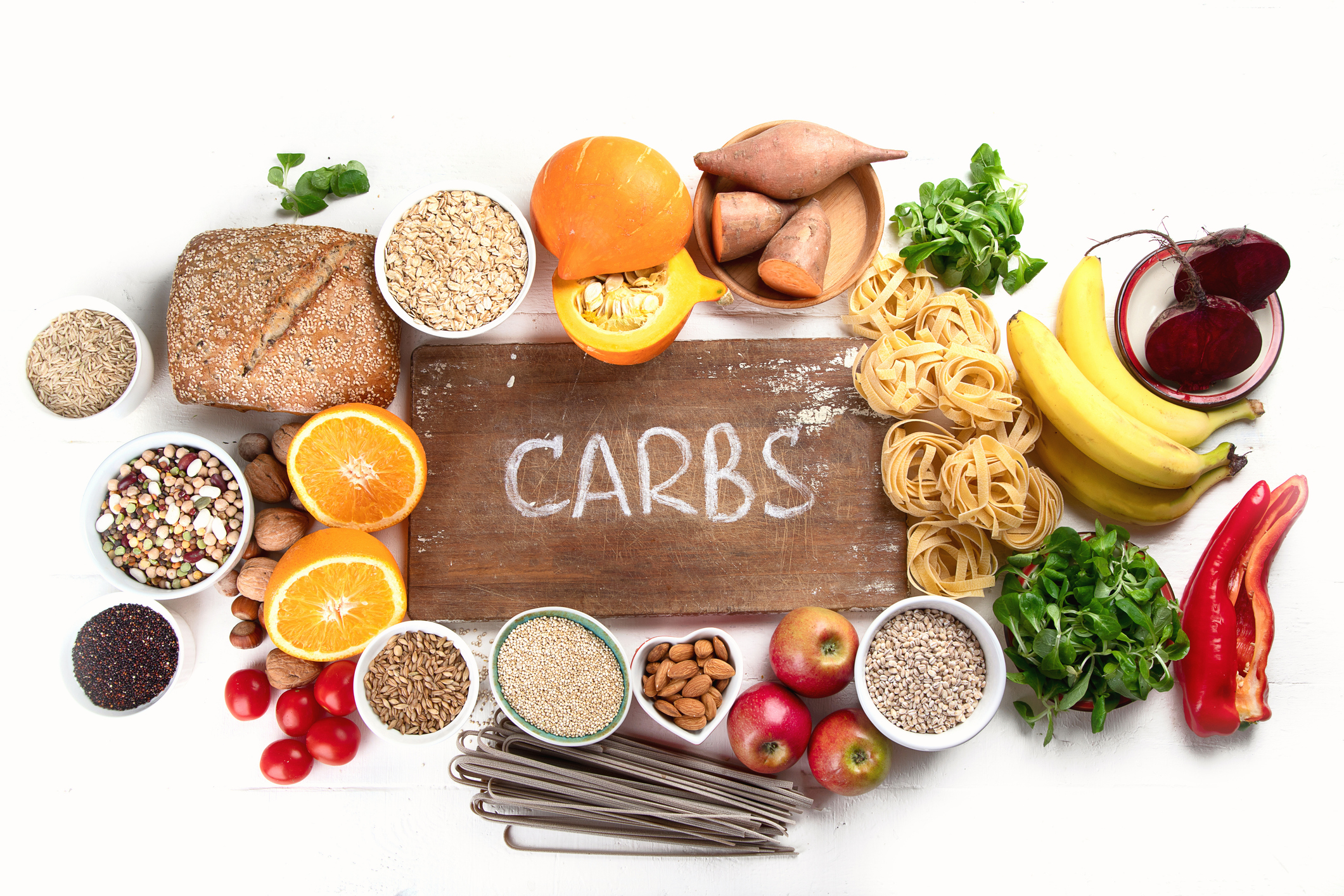0818 Work Insights
Your go-to source for the latest work trends, tips, and advice.
Carbs: The Delicious Secret to Your Next Big Energy Boost
Unlock the power of carbs! Discover how delicious carbs can supercharge your energy and fuel your next adventure!
The Science Behind Carbs: How They Fuel Your Body for Energy
Carbohydrates are one of the three macronutrients that play a crucial role in providing energy for our bodies. When consumed, carbs are broken down into glucose, which is then used as fuel by our cells. This process begins in the mouth, where enzymes like amylase start to digest the starches. The majority of digestion occurs in the small intestine, where glucose is absorbed into the bloodstream, leading to a rise in blood sugar levels. This increase signals the pancreas to release insulin, a hormone that helps transport glucose into cells for energy production. Without adequate carbohydrate intake, our bodies can become fatigued and less efficient, as glucose is often the preferred source of energy for most bodily functions.
There are two primary types of carbohydrates: simple carbohydrates and complex carbohydrates. Simple carbs, found in foods like fruits and sugary snacks, provide quick bursts of energy, while complex carbs, found in whole grains and legumes, offer a more sustained energy release due to their higher fiber content. This distinction is significant, as consuming the right type of carb at the right time can help optimize energy levels throughout the day. For example, athletes often rely on complex carbs before a workout to maintain endurance, while quick snacks of simple carbs can help in a rapid energy boost post-exercise. Understanding how to harness the power of carbs is essential for anyone looking to improve their physical performance or overall health. For more insights, check out Mayo Clinic's guide on carbohydrates.

Top 5 Carbohydrate-Rich Foods to Supercharge Your Workout
When it comes to fueling your workouts, carbohydrate-rich foods play a crucial role in providing energy and enhancing performance. Here are the top 5 carbohydrate-rich foods that can help you supercharge your workout:
- Bananas - Packed with natural sugars, bananas are an excellent source of quick energy. They are rich in potassium, which helps prevent muscle cramps during exercise.
- Oats - This whole grain is great for providing sustained energy, thanks to its slow-releasing carbohydrates. A bowl of oats can keep you fueled for longer workouts.
Continuing with our list, here are three more carbohydrate-rich foods that will energize your workouts:
- Sweet Potatoes - Rich in vitamins and minerals, sweet potatoes offer carbohydrates that provide lasting energy. They also contain fiber, which aids digestion.
- Quinoa - More than just a trendy grain, quinoa is a complete protein and rich in complex carbohydrates. It’s perfect for pre- and post-workout meals.
- Brown Rice - A staple in many diets, brown rice is loaded with nutrients and complex carbs, making it an ideal option to fuel longer workouts.
Are Carbs Bad for You? Debunking Common Myths About Carbohydrates
Carbohydrates have long been misunderstood, often labeled as the enemy in the quest for a healthy lifestyle. However, it's crucial to recognize that not all carbs are created equal. While processed carbohydrates, such as white bread and sugary snacks, can negatively impact your health, whole food sources like fruits, vegetables, and whole grains provide vital nutrients and energy. According to a study from the U.S. Department of Health and Human Services, including a variety of carbohydrates in your diet can actually support physical activity and overall well-being.
Moreover, many diets that promote low-carb or no-carb principles can lead to unintended health consequences. The National Institutes of Health emphasize that cutting carbs completely can deprive your body of essential nutrients and lead to fatigue, irritability, and nutrient deficiencies. To maintain a balanced diet, it's vital to focus on complex carbohydrates that keep you full longer and provide valuable energy. For instance, incorporating fiber-rich foods can improve digestion and reduce the risk of chronic diseases, proving that carbs, when chosen wisely, can be a healthy part of your daily intake.